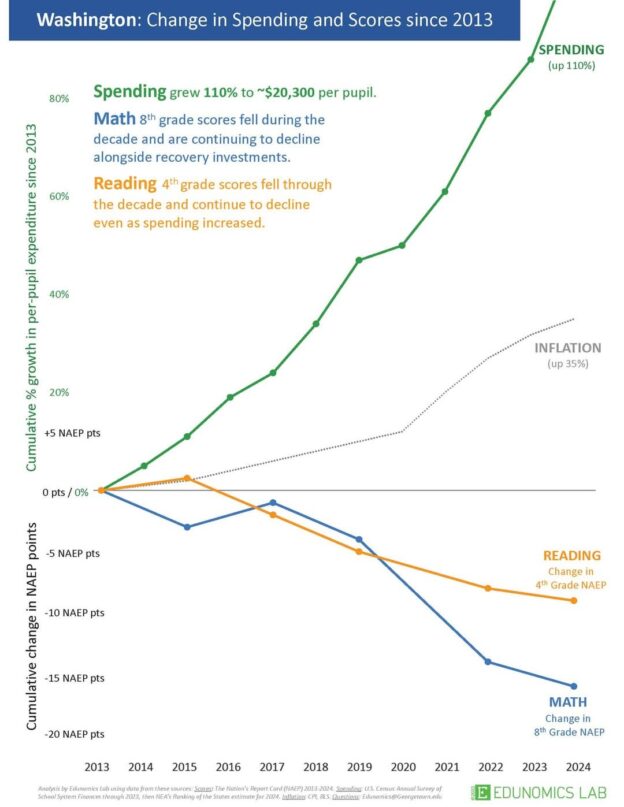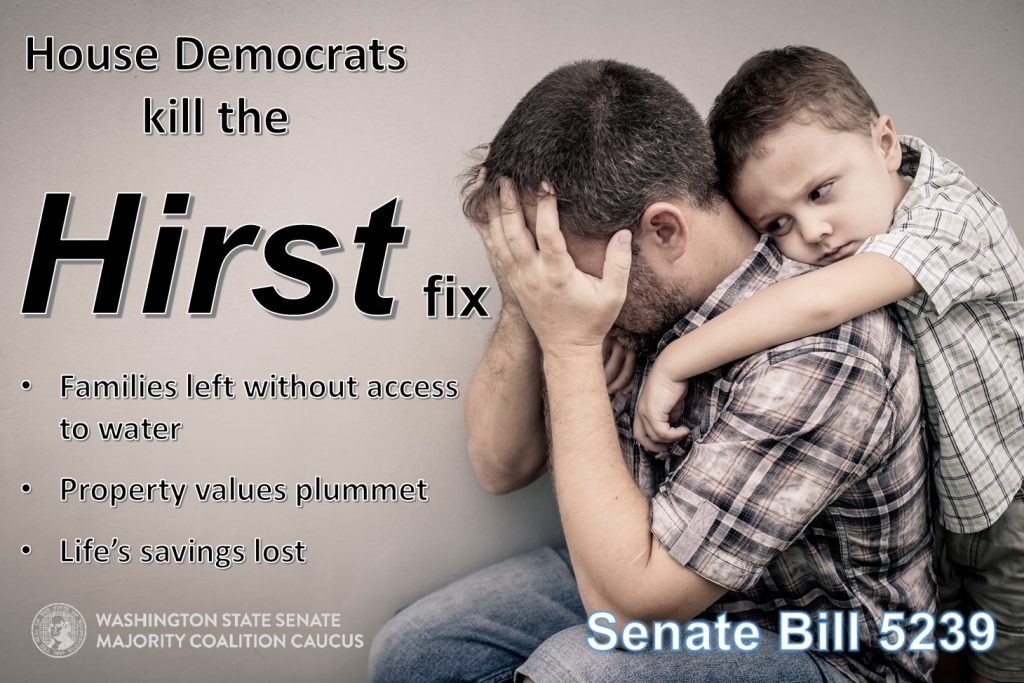Greetings Friends and Neighbors,
We have reached the half-way point in the 2016 legislative session. When the Legislature adjourned last July, our state’s budget was balanced, making critical investments in our state’s K-12 system, investing in higher education and our state’s safety net. This year, much of our work is focused on funding K-12 education and addressing the costs of a very active fire season.
In these even-numbered years the Legislature convenes for only 60 days to make minor adjustments in the state budget and address pressing policy issues. The legislative session is scheduled to conclude March 10 and I am looking forward to finishing on-time with a sustainable budget that makes the right investments for Washington.
A look at our state’s budget

Washington’s economy is growing and that positive news has meant a lot for our state’s budget. Last year we were able to fend off plans to raise taxes by over $1 billion. With additional revenue coming in it seemed irresponsible to spend beyond our means.
The chart above tells an interesting story about our state’s four-year budget outlook. As required by law Washington’s budget must be balanced over four years. The Legislature adjourned with a strong bipartisan and balanced budget that left $47 million in reserves. As a result of the Governor’s veto the budget was in the negative by $23 million. Positive economic news brought an additional $313 million to the state’s treasury but costs related to last years active fire season and out of control costs at the states Health Care Authority have resulted in a negative balance for the state. If you include the Governor’s policy proposals in his budget the problem becomes even worse. This is the kind of government spending that cannot continue. We need sustainable and responsible budgeting especially when revenue is up more than 10 percent.
Interesting facts about our economy
Although larger urban areas have seen unemployment drop and other positive economic news, I am working to make sure this upswing results in more jobs for our area and opportunities for our local small businesses. I found this report on state economics interesting. Click here to learn where our state ranks in the economic recovery.
Washington is a very trade dependent state. In fact we are the largest per capita exporter according to the state Department of Commerce, with nearly $90.5 billion in exports. The Washington Council on International Trade notes that rail is a key component to continued economic prosperity. Our local farmers depend on rail to move their goods to market, statewide nearly 10 percent of Washington’s gross domestic product relies on freight rail to move agricultural and even aerospace products to market. All told, this industry supports over 200,000 jobs in Washington State.

Committee Updates
To keep the legislative process moving, there are critical milestones throughout the legislative session. We are fast approaching the first cutoff, which means that policy bills from their house of origin must receive a public hearing in committee by Feb. 5 to continue in the process. The committee that I chair, the Senate Agriculture, Water and Rural Economic Development Committee, has been working extensively on water issues. We learned a lot from the drought last year and must look at creative and collaborative ways to address water access, quality and quantity challenges in our state. I encourage you to take a look at what goes on in my committee with detailed agendas and documents by clicking here.
|
Education challenges
With nearly half of our state’s $38 billion budget allocated to K-12 education, the Legislature is still grappling with complex policy issues around meeting the state’s obligation to fully funding education. The reality is that student achievement and success is not just about writing another check. Of particular interest during this legislative session is addressing how the state compensates teachers. Local districts through their levies are disproportionately bearing too much of the burden and the state is looking for ways to take on that aspect of school funding that is fair and balanced so that the quality of a child’s education isn’t determined by their ZIP code. There are several proposals being worked on by a group of bipartisan lawmakers. However, this may be a heavier lift than can be accomplished in this short legislative session.
In addition to compensation, our state faces teacher and substitute teacher shortages. Rural and lower income school districts face challenges recruiting and retaining talented teachers that make all the difference in a class room. Creating a more fair school funding at the state level that doesn’t over rely on local property taxes, which varies greatly between school districts, would go a long way in addressing teacher recruitment. The Legislature also needs to look at other regulatory issues that keep educated professionals from entering the teaching profession. Currently a person with a master’s degree can teach at a community college but without additional education and certification is unable to teach in our K-12 system. There must be common sense reforms we can put in place to expand opportunities in our educator workforce to meet the needs of students in our state.
In Remembrance
Late last week we received news that a former legislator representing part of our district in Lincoln County passed away. Representative Robert Dale Timm served the 8th Legislative District in the state House of Representatives from 1951 to 1959. I did not have the privilege of working with former Rep. Timm but he leaves behind a lasting legacy of accomplishment and public service. I recall that my own late mother spoke fondly of many Timm family members with whom she attended grade school. My thoughts and prayers go out to his family.
It is an honor to serve as your state Senator. Please don’t hesitate to contact me with questions regarding state government.
Sincerely,

Judy Warnick,
13th District Senator
Share my E-newsletter
Do you know others who live in our district who may not be receiving my e-news updates? Please feel free to forward this e-mail invitation to them or click on the share button below. If you have received this without directly subscribing, please visit my website by clicking here and sign up to receive my e-newsletters!

Contact Me
Olympia Office:
103 Irv Newhouse Bldg.
P.O. Box 40410
Olympia, WA 98504
Olympia Phone:
360.786.7624
E-mail:
Judith.Warnick@leg.wa.gov
Website:
Click here to visit my website.
|

















 Investing in our community
Investing in our community









